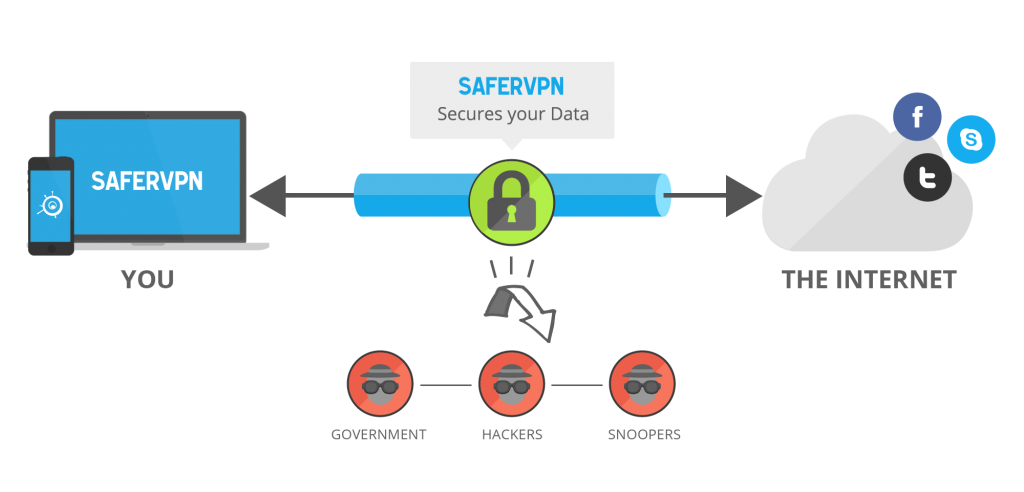What is a VPN?
When you use a VPN to connect to the internet, you computer, tablet, smartphone etc acts as if it is on the same local network as the VPN. This creates a secure network to send all of your network traffic across. Due to your device behaving as if it’s on this local network, it allows you to security access local network assets even when you are in a entirely different country.
What this also means is you will be able to use the Internet on your local device as if you were at the VPN’s location, which means you will be able to access geo-blocked websites and the such.
When you surf the internet while connected to a VPN, your device contacts the website through the encrypted VPN connection. This means that people cannot intercept and steal your information, or governments cannot log information about your online habits.
The VPN will forward any requests from you to the website you are accessing, and then forwards the response from the website back through the secure connection. This means if you are using a USA-based VPN to access Netflix for instances, Netflix will see your connection as coming the within the USA – unlocking additional content which would not be available in Australia due to region locking.
Uses for VPNs (Thanks to HowToGeek.com)
VPNs are a fairly simple tool, but they can be used to do a wide variety of things:
- Access a Business Network While Travelling: VPNs are frequently used by business travellers to access their business’ network, including all its local network resources, while on the road. The local resources don’t have to be exposed directly to the Internet, which increases security.
- Access Your Home Network While Travelling: You can also set up your own VPN to access your own network while travelling. This will allow you to access a Windows Remote Desktop over the Internet, use local file shares, and play games over the Internet as if you were on the same LAN (local area network).
- Hide Your Browsing Activity From Your Local Network and ISP: If you’re using a public Wi-Fi connection, your browsing activity on non-HTTPS websites is visible to everyone neraby, if they know how to look. If you want to hide your browsing activity for a bit more privacy, you can connect to a VPN. The local network will only see a single, secure VPN connection. All the other traffic will travel over the VPN connection. While this can be used to bypass connection-monitoring by your Internet service provider, bear in mind that VPN providers may opt to log the traffic on their ends.
- Access Geo-Blocked Websites: Whether you’re an American trying to access your Netflix account while travelling out of the country or you wish you could use American media sites like Netflix, Pandora, and Hulu, you’ll be able to access these region-restricted services if you connect to a VPN located in the USA.
- Bypass Internet Censorship: Many Chinese people use VPNs to get around the Great Firewall of China and gain access to the entire Internet. (However, the Great Firewall has apparently started interfering with VPNs recently.)
- Downloading Files: Yes, let’s be honest – many people use VPN connections to download files via BitTorrent. This can actually be useful even if you’re downloading completely legal torrents – if your ISP is throttling BitTorrent and making it extremely slow, you can use BitTorrent on a VPN to get faster speeds. The same is true for other types of traffic your ISP might interfere with (unless they interfere with VPN traffic itself.)



